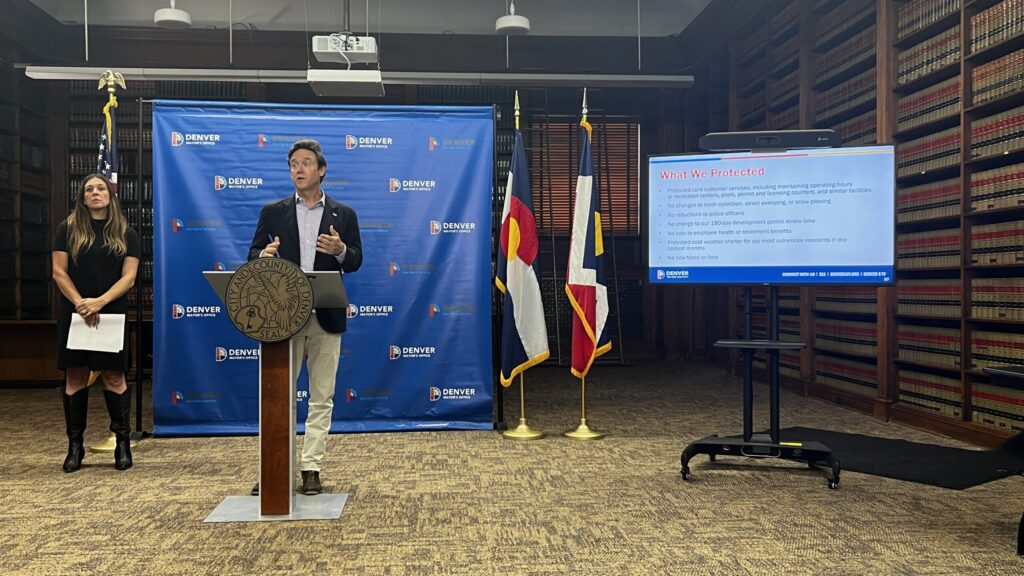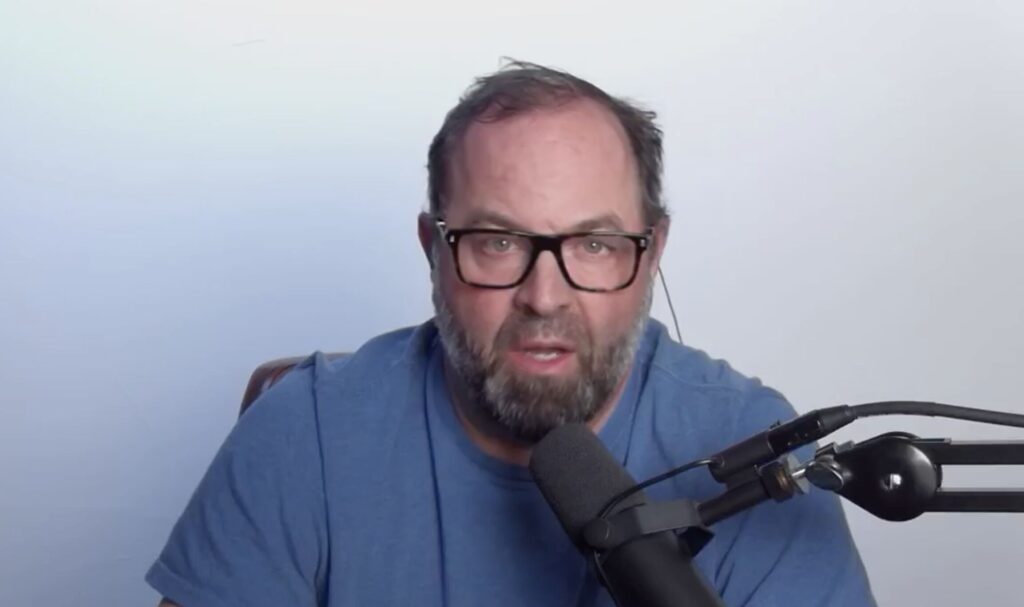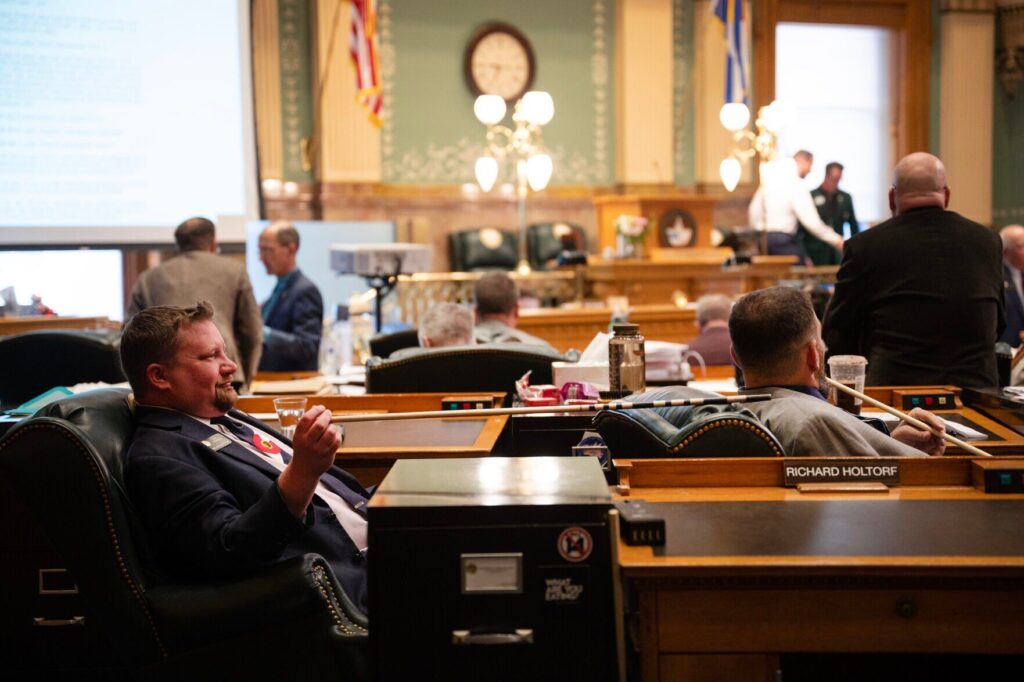House Democrats say nuance on simple possession of fentanyl is lost in deadly overdose rhetoric
With a hearing on how to deal with the state’s fentanyl crisis just a few hours away, Democrats attempted Tuesday to counter some of the rhetoric around the issue of simple possession.
Democrats also appear to be open to the discussion of lowering the fentanyl felony from 4 grams to 1 gram, but that comes with a lot of caveats.
Current state law sets 4 grams of a schedule II drug, including fentanyl, as the threshold for felony possession charges. But the issue that House Bill 1326, which will be heard in the House Judiciary Committee on Tuesday afternoon, intends to address is the difference between pure fentanyl and fentanyl that is mixed with other drugs, such as heroin, cocaine, meth, and other illicit street drugs or even black market marijuana.
Law enforcement officials have drawn a hard line on the issue of simple possession, insisting House Bill 22-1326 should possession of any amount of fentanyl a felony. In a joint statement Tuesday morning, the organizations representing police, chiefs of police and county sheriffs in Colorado said they support the “goals of the bill” but that it “needs to be amended so that possession of any amount (of fentanyl) will be a felony.”
But the issue is more nuanced than that, according to Rep. Kerry Tipper, D-Lakewood, an attorney and a member of the House Judiciary Committee.
What the state is dealing with is fentanyl mixed with other drugs or, when in pill form, mixed with a substance, such as acetaminophen, which is essentially Tylenol. In that situation, 4 grams of fentanyl represents about 40 pills – at about a tenth of gram of fentanyl in each tablet.
Fentanyl pills – which Don Stader, an addiction medicine physician, said had become Colorado’s “drug of choice” in recent years – are typically made by cartels in Mexico. The cartels receive precursor material from China to make powdered fentanyl and then combine it with acetaminophen or another substance into pills. Though fentanyl is a legitimate anesthetic that’s been used for decades in medicine, its illicit pill form often mimics the look of legitimate oxycodone pills, complete with a counterfeit manufacturing stamps.
To lower the amount for a felony charge, lawmakers would like to see more robust treatment for those caught carrying pills containing fentanyl, along with providing district attorneys with more tools, such as deferred judgments or plea agreements, to ensure that users get treatment rather than lengthy prison sentences, Tipper said.
If the public feels so strongly about criminalizing simple possession, she told Colorado Politics, “we have to respond to that concern.”
But putting addicts or even casual users in prison or jail indefinitely doesn’t work, she added.
Some of that is because of problems tied to the state’s policy on medication-assisted treatment programs in jails. MAT programs generally are directed toward helping those addicted to opioids or alcohol when they’re incarcerated, either in prison or in jails. But as contained in a bipartisan law approved in 2019, Senate Bill 19-008, the state requires only that jails have a policy on MAT programs. For some, the policy is to not have an MAT program, experts say.
Some other jails that offer MAT only do so in limited settings, such as for pregnant women or for people who were already participating in it before they were incarcerated.
HB 1326, the current proposal on fentanyl, partly addresses that gap by requiring jails that receive money from the state’s jail-based behavioral health services program in the Department of Human Services to develop protocols for medication-assisted treatment. However, as written, the bill still doesn’t require jails to actually offer such a program, a gap that advocates have criticized.
Tipper said she hopes HB 1326 will help the state track data to ensure people are getting help, lest the state find itself incarcerating a generation of addicts, which would make it harder for them to get help, she said.
“We’re trying to strike a balance,” Tipper said, referring to not criminalizing addiction and treating fentanyl as a public health – and not primarily a law enforcement – crisis.
Speaker of the House Alec Garnett of Denver told Colorado Politics he’s looking at the issue of dropping the felony possession down to one gram, but with the caveats that Tipper described.
Law enforcement groups have said they want the bill to make possession of any amount of fentanyl a felony, arguing that the substance is so dangerous it requires a tougher response.
Attorney General Phil Weiser said he, too, supports making simple possession of lower quantities a felony. His spokesman reiterated that position Tuesday morning, but he said Weiser would need to see an amendment actually proposing that change before commenting on it.
Tom Raynes, executive director of the Colorado District Attorneys Council, said Tuesday morning that “a majority” of the state’s district attorneys “would be interested” in changing the felony threshold to 1 gram. While simple possession isn’t their top priority heading into this session, “I think all would agree that the 4 gram possession level is too high.” He said no one can know the perfect answer, but that one gram “seems more consistent with what a true personal use amount might be.”
Harm reduction advocates sharply criticized the suggestion to lower levels of fentanyl possession for felony charges.
Terri Hurst, a policy coordinator for the Colorado Criminal Justice Reform Coalition, said it is “a shame that logic, reason, data, research and rational thought goes out the window when politicians talk about drug use and drug policy.”
“Felonizing possession of drugs isn’t going to save lives,” she said. “It is only going to lead to an increase in incarceration rates, more overdose deaths and more harm perpetuated in communities that have already been harshly impacted by the War on Drugs.”
Lisa Raville, a leading harm reduction advocate and the head of the Harm Reduction Action Center in Denver, said lowering the felony level to 1 gram “can’t be the plan.”
“This will make people who use drugs and chaotic drug users felons for life,” she said.
The hearing on HB 1326 begins at 1:30 p.m. in the House Judiciary Committee. As of 10:30 a.m., 125 people have already signed up to testify.













